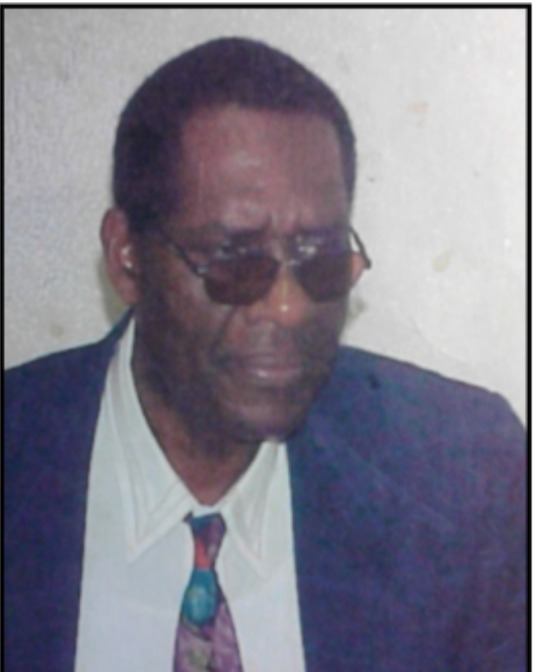Word from the author
Dear reader,
Dear reader,
La Hatte Rocher is not the product of a convulsive confabulator. This village does indeed exist at the northwest end of Gonaïves, the City of Independence. The description of this wild region with its cacti, a township similar to the landscapes of the Far West, does not arise from the fertile imagination. Drought, poverty, illiteracy… none of this was invented for the needs of the cause. It is truly a tangible place, a visible location, where life and death fight relentlessly with shovels.
Fictional components such as Habitation La Rosée, characters and events – most of which take place in an unalterable historical environment – play a major role in the narrative structure and the logical construction of the story.
La Hatte Rocher, cradle of poverty and illiteracy, represents in this work the Bethlehem of the New Testament, of which it was said ironically: “What good could come from such a place…? » Despite this, didn’t Bethlehem surprise the world? Has it not become the birthplace of the “Messiah”, the living theater of “Christianity”, just as La Hatte Rocher, in this romantic work, symbolizes a land of birth of “Christianity”. Freedom » in the Americas?
Robert Lodimus
Robert Lodimus
The Blood of Prophecy
_________________
Roman
Chapter I
Funerals
“Those who claim to have the truth are those who have abandoned
the continuation of the path towards it. The truth cannot be possessed, it
looking for oneself. »
(Albert Jacquard)
The rotting wooden slums sank into the slack waters. The local residents curled up in their nest of solitude. A solitude, let us say it, almost lethal which reinforced the moving fears of an imminent end of the world… Only the resonances punctuated by the weak and sharp coughs of a few children and old people who came from certain lodgings, because of the unregulated climate, mingled to the whistling of the winds and the uproar caused by the violence of the raindrops in contact with the choked ground, because of the abundance of water. The humidity made the warm September air even heavier. However, it was autumn. After all, it had to be recognized, it was a country which no longer possessed anything. Not even the “four seasons » who weaved much of the web of glory of the famous Italian composer Antonio Lucio Vivaldi. The tears of the gloomy sky grew for three days, and without respite, the ravine, usually dry, which splits the landscape like the walls of China. The waffle of life furrowed the hearts of the villagers with infelicity. From this field of barracks, with the diffuse gazes, one would have said funerary lilies attached to pillories of suffering: a wild, gloomy, dreary landscape, located “far from the city, far from the king’s palaces, far from the servile court , far from the vile crowd…”, to quote Victor Hugo out of context; a village covered with a pallor of consumption which carried its bad luck like penitents and ascetics. The verses of Émile Nelligan better conveyed the state of mind that prevailed in this prosaic and decadent region, where the inhabitants were pulling the devil by the tail, so as not to abandon themselves to the torture of a slow and certain death:
“We have so much despair
How sad our hoof is.
Starving people and artists
Their only good is their contrite hearts. »
And to think that we would not even have been surprised, if someone had affirmed under a burst of confused verbalism that these words of the poet of “ The Deicides “, to prove their accuracy, their veracity and their reason for being, had escaped that day from the spiritual priory to undertake an imaginary journey to the cemetery of La Hatte Rocher, and that the words filled with bruises and pain, arrived as if by magic in these places of gloomy circumstance, would have disintegrated to spread like roroli seeds on the coffin of the old woman of La Rosée, asleep for two days in her esoteric cardigan. After having cradled his “contriite soul” for too long, the poor creature ended up saying in the manner of Dan Millman: “Death is not sad; the sad thing is that people don’t really live. »
Gracieuse went to smoke her mangrove pipe in the land of immaculate fir trees. The heart, like the engine of an old racing car, thumped against the neck of “extreme hunger” and adversity. The independence movement allowed the evening primrose of its promises and dreams to wither. And it was the poet Charles Nokan who sounded the alarm years later:
“My country has just given birth
A certain independence
And already her belly is carrying a revolution. »
Gracieuse disappeared at the age of eighty-five, without ever managing to climb into the Tabaski cart. [1] to place his wishes in the mutilated hands of Zumbi [2].
The mithridatization effect of misery having ceased, Gracieuse left, with total relief, the universe of the “wretched of the earth”. The times which passed like clods of clouds driven by the wind did not succeed in demagnetizing the long song of sadness which crossed the entire village of La Hatte Rocher.
A canopy of dead leaves served as a sarcophagus for the deceased. The undertaker planted a homemade manchineel cross there to mark the place of burial. The mourners were silent. The funeral procession was made up of around twenty peasants of both sexes, stuffed in their appropriate attire. A sheepish octogenarian, looking like a witch in a fairy tale, dressed in a white silk dress, tired, broke away from the small crowd to approach the dirt pit. She stretched her feeble, shivering arms toward the sepulchral site and muttered confused words. His raspy voice rumbled a voodoo ritual that transported his entire body into a mystical universe of frenzy and weirdness. The old lady pirouetted on her frail heels, then invited the audience to come forward. The voices of the improvised choir mixed unevenly:
Graceful you go
When will you come back to see us
Graceful you go
Alone and tired
Towards the sacred land
Spirits of our fathers
Graceful the journey will be long
May the angels before you
Clear the trails
Which lead to immortal glory
Graceful you go
When will you come back to see us
Goodbye, goodbye Gracious
Goodbye Graceful
Goodbye, goodbye Gracious
Bye…
The small cemetery was built on the steep slopes of the Valley of the Sully brothers. You had to cut through the ravine to get there. The place was named in memory of two teenagers murdered by a contingent of the army of occupation of 1915 which was patrolling the mountain, looking for the cacos of the Péralte guerrillas, spearheads of the resistance of the natives against the presence of the Yankee invaders on the soil of the Dessalinian homeland. They had just inflicted a heavy defeat on around fifty marines and had seized their weapons and ammunition. The innocent kids were riddled with bullets, as they gathered twigs to light the fire to cook the meager meal of the day that their mother was preparing… Before disappearing, the murderers left the bloodied bodies half naked two kids aged twelve and fourteen suspended at their feet, therefore upside down, by a rope attached to a branch of a sterile fig tree, like the one cursed by Jesus in the colonizers’ Bible. The devastating news constantly drove the mother of the two young victims crazy. And she herself, the poor widow Madeleine, did not survive long the terrible pain that the tragedy of the assassination had caused her.
Gracieuse no longer needed the presence of the living to disturb her “ eternal rest “. His soul was already wandering in the abysses of darkness in search of the mystical and invisible places of his final home in the secret kingdom of the divinities of his ancestors.
The sky clouded over once more. The chest of the firmament was lacerated by the lines of fire formed by branching lightning. Large drops of rain began to strafe the earth again. Caribbean gulag, this small portion of land where the downpours of human misery rose to the height of excessive decadence. The sparse procession, soaked to the skin, had taken the winding path in the opposite direction. Dieufort gave his arm to Élianise who tripped twice in the puddles of sticky mud. The entire village, as a sign of sincere gratitude, a testimony of intense affection and as a demonstration of deep respect towards the deceased, followed the coffin covered with a green, embroidered flag to the Séraphin cemetery. of cabalistic symbols observed in the four extremities which almost licked the lips of the earth, the center dominated by the portrait of the divinity Statue. The two matriarchs, Gracieuse and Élianise, were a source of comfort for the peasants of La Hatte Rocher and they also formed for everyone, alone, a dike of protection against the forces of evil which threatened to destroy “life” at any moment. », in the general sense, on Habitation La Rosée. Since the mysterious disappearance of the great “Sage”, founder of the village, the “evil spirits” have increased the attacks of persecution against the Afro-descendants of the La Rosée family. The devil with the seven horns had sworn to decimate every last one of them and to desertify this sacred place, a symbol of resistance, fraternity, bravery, resilience, spirituality, mutualism, revolt, universal freedom…
At eighty-four years old, Élianise’s memory was still, in its fidelity, comparable to the well-preserved films on which Vertov [4] printed the different phases of the “October Revolution”. However, his sheep’s hair and the few teeth yellowed by tobacco which hung in his gums like stone picks riveted in a cavernous gorge gave him the appearance of a phantasmagorical character straight from the world of Frankenstein. [5]. But the goodness and generosity that emanated from this old body damaged by time and calamities could be measured by the yardstick of the immense ocean. An exaggerated altruism of infinite dimension. Élianise had given everything to her family and to others, without expecting anything in return from anyone, other than the emergence of this day of eternal rest in this metaphysical universe which will come to concretize the undeniable promise of the “spirits” towards her, in as a “reward after life”, although well deserved. In the manner of Bertolt Brecht, she came to understand, as a human being, at her level of course, that it was our duty to grasp the trowel of change, in one way or another. , in one sense or another, and each, according to their ideological convictions, according to their means, according to the force what we have, to help leave this better world behind, when we have taken the last stage of the great earthly journey.
” I tell you :
Care as you leave this world,
Not to have been good, that is not enough,
But to leave a good world [6].»
The hut of Élianise, the old spiritualist, was built at the foot of the hill which dominated the Habitation La Rosée. She was resting in the shade of the three mystical caimitiers. Trunks of dead trees arranged pell-mell, one on top of the other, served as a fence for the Dwelling erected like a cenotaph in the gloomy area of La Hatte Rocher, and this, despite the presence of the descendants of the twelve last survivors of this “prophecy”, similar to that of Agabus or Zephaniah, who continued to hunt down, persecute and decimate the members of this exceptional family.
In her moments of intense sorrow, Élianise always remembered the words of her elder brother, Marcellus, on the morning of Easter Sunday, the day of the resurrection of the crucified Christ – we no longer know how many times – where he had come to announce to their mother that he had finally made the decision to leave the countrys. To expatriate forever. Everything became unbearable for him. His existence was emptied day after day, like barrels of Bacchus.
« – Mother, said Marcellus, the region offers no chance to little people like us. The government is destroying peasants’ land with these damn plants that North Americans call ” rubber tree “. The “white people” of the United States force us to cut down our fruit trees: coconut trees, mango trees, avocado trees, orange trees, date palms, chadequier trees, quenepier trees, cirouelli trees… And they cultivate their poisonous filth instead. The State and foreigners force the poor to do corvée. Those who dare to raise their voice to protest go to prison, or are not executed, cruelly killed like slaves without confession. These evil sons of dogs always say that they must be mistreated to prevent them from setting bad examples for the completely submissive and depersonalized peasant affrans. The gendarmes took Philogene who wanted to launch a strike movement to Wreath to denounce the three “American” agronomists, Bill, Jefferson and Peter, who raped the fifteen-year-old girl, the youngest daughter of an agricultural worker named Timocles. No one has ever known what happened to Philogene, this honest countryman, originally from Grande Saline, and who had no known relatives in the region. Mérilien, the mechanic, told Davilmar that Philogene was murdered like Horace and Little Man at the Crossroads for having slapped and shoved the “whites” who kicked the butts of the two sweepers, Présandieu and Henriot. »
That day Marielle, Élianise’s mother, shrugged her shoulders with a helpless air. Probably, she was repeating to herself: “I will never see my twenty-two-year-old boy again. Yet another “living Christian” that the country will lose forever…He will take a wife there, give me grandchildren that I will never hold in my arms…”
A good number of country people who had decided, for the same inconveniences, to follow on the heels of the exodus, as the Three Wise Men followed the mysterious star of the East, – but for another reason –, had never returned at the village. The return boat had perhaps run aground against an iceberg of disillusionment and disenchantment. For here is terrible, and there is hideous. And to tell the truth: it is only the places that change and not the words, when it comes to describing the same misfortunes and translating the same suffering, from one ocean to the other.
Marielle suddenly felt a ball of fire rising in her throat. The panting in his chest betrayed his instant imbalance. His buzzing brain, on the verge of exploding, could no longer contain the trembling of his hooked, pudgy fingers. Slumped in the old century-old armchair, one of these laments from Guinea captured the quivering lips of the queen of Creole fairies.
Agwe Tawoyo
god of the sea
Master of the Islands
Wayo, Wayo
Rock the boat
Valiant warriors
On the waters of the Caribbean
Agwe Tawoyo
As an atoning sacrifice
Accept the abundant tears
Of our pain
On the fury of the ocean
Extend your sword
And book passage
To the despised daughters and sons
Of fragmented Africa
Agwe Tawoyo
It would be, it would be
Agwe Tawoyo
Agwe Tawoyo
It would be, it would be
Poverty is bitter
Book passage
To your servants
Agwe Tawoyo
Agwe Tawoyo
It would be, it would be
Marielle buried her depressed face in the palm of her two hands, as if she wanted to draw upon herself the prepotency of the commiseration of the Dahomean gods.
“- Marcellus,” she said, “you cannot leave without asking the “mysteries” for direction, without obtaining permission from the “loas,” without benefiting from the protection of “Aida Wedo.” They are our strength, our light, our eyes and our guide. Tomorrow we have to organize a big ceremony for the “invisibles” at the entrance to the village, near the Mackandal cave. »
“-Mom, what good will this do? It’s wasting your meager savings for nothing. What can Simbie-la-Source, Saint-Jacques le Majeur, Legba, Erzurlie Dantor, Ayizan… do to change the fate of black men and women? They are deaf and dumb. Totally powerless to our tribulations… The riches of the earth are in the hands of a small group of privileged families. It is truly a minority who enjoy the advantages of life. Poor individuals like us who represent the majority of the earth’s inhabitants only pick up crumbs under the table of the bourgeoisie to try to survive, to resist the shocks of the famine which is crushing us. These people go to church every Sunday. They put a few cents in the purse or in the trunk, just to clear their conscience. From birth, nature gave them everything. The day before yesterday, I heard Maître Augustin Lachance, the old lawyer who had Losange released, without asking for fees, telling his wife Lolita that the State is unfair to the poor. Sooner or later, he said, and I quote him word for word, the walls of the “Revolution” will complete the work of building the independence and sovereignty of the nation, interrupted by the death of Emperor John. -Jacques Dessalines. Mérinord, the son of the deceased Paula, your first cousin, explained to me what that meant in the language of “philosophers”. Mérinord said that he was going to return to Africa, to live with people of his race. He thinks that the “white people” will do everything to drive us from this earth. »
“- What great words Marcellus! You have to watch your mouth, my son. You must not force the “loas” to turn their backs on you. Tomorrow morning, at the first rooster crow, at the chirping pipirite, you are going to get clairin, candles, corn kernels, pistachios, rice, beans from gossip Maricia. And don’t forget to announce the news to the rest of the family in Phaéton. They must all be present tomorrow, as soon as night falls. »
*
* *
The bursts of laughter from the kids mixed with the barking of the dogs, excited by the dense and moving crowd of guests. Under the arbor covered with large palm leaves, freshly erected for the ceremony, the hounsi Kanzo women dressed in their long milky dresses, their waists belted with scarves of equally dazzling whiteness, knelt around the pole wrapped with fringes of fabrics reminiscent of the palette of the famous painter and sculptor Michelangelo [6]. The bokor Aristil looked well at his seventy-seven years. His unsightly face, divided by deep wrinkles, similar to trench lines, of an opaque and oily black, his sparkling eyes, with a bright red color, made the decor even more frenetic. It was a moonless night. “A moonless night”, as the English speakers say. Father Aristil slowly knelt down and traced “vèvè” with corn flour on the ash ground. A syncopal shudder shook the shoulders of the hounsi kanzo and their ritual songs merged with the pounding drums of the unleashed drummers. The audience repeated the refrain of the song in chorus:
We are pilgrims
From distant Africa
We fear neither rain nor wind
We are the children of godmother Cira
And mistress Deborah
We sing
We invoke the “mysteries”
So that tomorrow at Hatte Rocher
It’s daytime
We are pilgrims
Lost in the land of martyrs
We will find the way again
From the sacred mountain
Where the Cacique Henri rests [7]
Ô Agwe
Give us back our warrior Caonabo…
Despite appearances, Hatte Rocher had become a kind of “ Land of oracles “. Voodoo rites and ceremonies symbolized redemptive hope and collective deliverance. The peasants kept the hope that the mass of bad memories and the epidemic of unspeakable suffering which fattened the seeds of misery every night, and which made them grow at dawn on sunless mornings, would one day be stopped from spreading. village tested like Job, the great-grandson of the prophet Isaac.
The day after the mystical ceremony to enlist the assistance and protection of the “loas” of Dahomey, which became present-day Benin since the 1is August 1960, Marcellus, bundle on his shoulder, said goodbye to his mother Marielle, his sister Élianise, his brother Osiris, to the other members of the family, all in tears, and definitively turned his back on Habitation La Rosée. He did not want to reveal his destination… And he never came back…! Even to lead Marielle to her final resting place. Palaverous tongues had led us to believe that Marcellus and his cousin Mérinord lived somewhere on the African continent.
Robert Lodimus
(First extract from the novel The Blood of Prophecy)
(To be continued)







